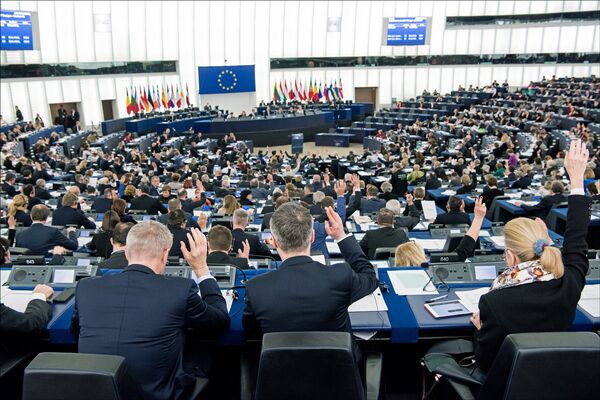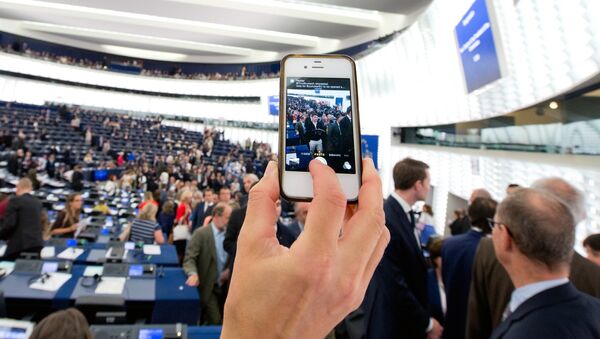The European Parliament is the only directly elected EU body, as opposed to the European Commission, the European Council and the Council of the European Parliament. It is home to 751 MEPs, who are democratically elected in their home nations.
Politico have compiled a list of who they consider to be the "40 MEPs who actually matter" — a who's who of the European Parliament, with predominantly Western European representation — twice as many MEPs from Germany than all the Eastern member states combined. While Germany constitutes 16% of the EU's population, German MEPs dominate on this list, gaining 16 of the top 40 spots. Though it's not so much "power" that they hold, it's rather influence.
Infographic: POLITICO's 40 MEPs who matter — Party groups with most MEPs in the list https://t.co/XToddrmaCd #EP40 pic.twitter.com/QtMvRroE9h
— Ryan Heath (@PoliticoRyan) May 19, 2016
MEPs do give the final vote over proposed legislation and amendments, and they elect the president of the European Commission — but they can be overruled by the European Commission, the executive body comprising 28 commissioners, 1 per member state, nominated by their home state. It is the Commission that is responsible for proposing and implementing legislation, and upholding EU treaties.
This has led many to question the democratic legitimacy of the EU.
Just watched MEPs debate refugee crisis. Each speaker given 1 minute. Call that a debate? Call that a parliament? #brexit #VoteLeave
— Jim Sillars (@NaeFear) May 14, 2016
The MEPs try to raise issues that are important to those who voted them into office, their home state, while commissioners swear an oath to represent the best interests of the EU as a whole. MEPs pass legislation on issues such as safe pesticides to use on food, safety standards for toys, and mobile phone tariffs. But when it comes to the bigger issues control tends to lie with the European Council — the heads of state of the nation members.
They meet 4 times per year, and more often when necessary, and set the policy agenda that the Parliament carry forward.

It's perhaps telling that there is absolutely zero consequence of not attending parliament to vote on issues, except potentially losing the support of those who elected you. Many Euroskeptic MEPs just don't bother attending Parliament debates or votes.
Maybe #UKIP realise that voting in the EU Parliament is a waste of time due to the corruption therein. #LeaveEU https://t.co/90fhupREwe
— Ash Bailey (@CinderfordAsh) May 6, 2016
Love it when an elected MEP speaks of an "unelected bureaucracy" while taking a salary.
— Marc K (@trojjer) May 19, 2016
It's the structural hierarchy of the European Union that has led many skeptics to refer to the decisions made as being undemocratic, or those of an unelected bureaucracy — a line that has played a central role in the debate over Britain's membership.




